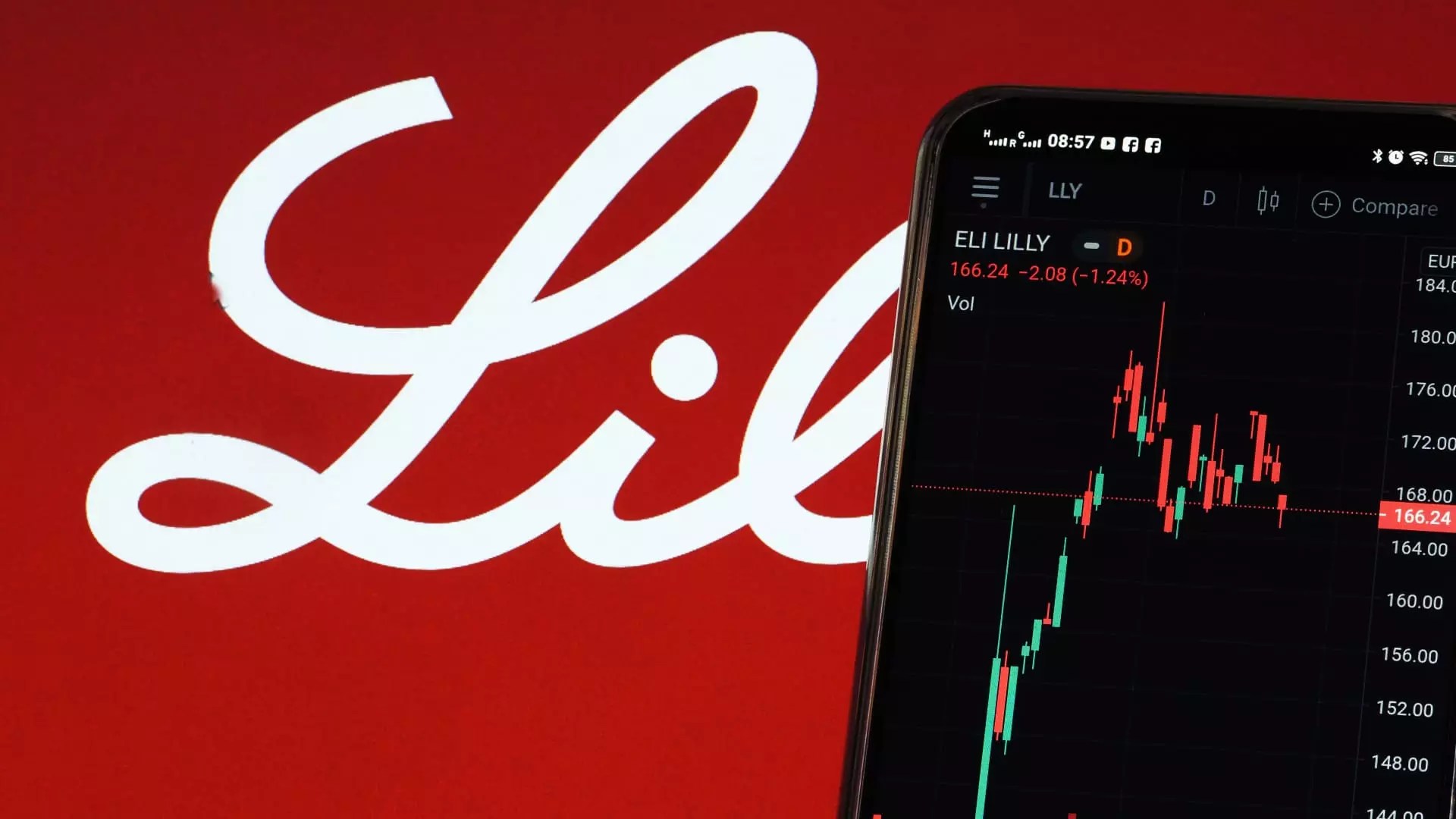As 2023 progresses, the biopharmaceutical sector continues to show potential for investors, driven by key players poised for significant returns. Amidst a backdrop of fluctuating performances, JPMorgan recently refreshed its list of promising biopharma stocks, suggesting a cautious yet optimistic outlook. This article delves into the analysis provided by JPMorgan’s analyst Chris Scott and identifies the companies that could potentially lead the sector forward.
At the forefront of JPMorgan’s recommendations is Eli Lilly, a company that has carved a niche for itself, particularly with its advancing weight-loss drug, Mounjaro, and diabetes management treatment, Zepbound. In light of its impressive stock performance, Eli Lilly stands as a testament to how innovative products can significantly impact market trajectories. The company has recorded substantial gains over the past year—approximately 16%—coupled with a promising 13% increase in its stock for 2025.
Analyst Chris Scott highlights that green shoots for Eli Lilly will continue to burst forth as the manufacturing capabilities and access to these drugs ramp up. He points toward the anticipated mid-2026 launch of the experimental obesity treatment, orforglipron, which could act as a major catalyst for future growth. The expectations surrounding this drug could ultimately enhance Lilly’s market position if clinical trial results signal success.
Despite these prospects, it’s critical to approach this optimism with caution. The company’s recent performance indicators reflected mixed results for the fourth quarter, failing to meet revenue expectations due to declining prices. Such inconsistencies underline an essential aspect of biopharma investing: the inherent volatility tied to clinical and regulatory outcomes.
Another company to watch according to JPMorgan is Bristol Myers Squibb (BMY). Although the company saw its stock dip slightly this year by 2.4%, it has nevertheless recorded a commendable increase of about 10% over the past year. This performance is especially impressive considering the stock experienced a pullback following fourth-quarter results that, while initially promising, fell short on anticipated fiscal guidance for 2025.
Scott urges investors to look beyond the immediate fluctuations and considers the underlying strength of Bristol’s core products, which continued to exceed expectations in the previous quarter. Moreover, the company is on track to widen its portfolio, with a focus on innovative treatments for schizophrenia and Alzheimer’s disease, which could effectively buffer the impacts of its slower-performing legacy products. The $2 billion cost-cutting plan instituted by Bristol represents a strategic move to consolidate resources for enhanced future performance, paving the way for possible multiple expansions.
Gilead Sciences emerges as another key player projected for growth within the biopharma landscape. With its comprehensive product pipeline and strong quarterly performance, Gilead finds itself encapsulated in an appealing investment narrative. Its robust HIV portfolio remains a cornerstone of its business strategy, coupled with an emphasis on efficient expense management, which has proven essential in today’s cost-conscious environment.
Scott’s insights suggest that Gilead’s strategic posture as an early innovator allows it to effectively navigate some market challenges, making it one of the stocks to consider moving forward. However, investors should remain vigilant about external factors that could impact Gilead’s growth trajectory, especially given the competitive nature of the biopharma sector.
The broader market dynamics reveal that the Nasdaq Biotechnology Index (NBI) witnessed a 6.5% gain in 2023 thus far, surpassing the returns of both the S&P 500 and the Nasdaq Composite. This resurgence marks a significant rebound from the previous year’s downturn, where the index reported a 3% loss while the overall market flourished.
Nevertheless, as highlighted by Scott, investors should keep an eye out for cleaner, more straightforward narratives within the biotech arena. In a climate where investor appetite leans towards transparency and strong fundamentals, biopharma companies with clear growth strategies and effective product pipelines are likely to attract more attention.
The biopharma sector, reflective of its inherent unpredictability, presents both challenges and opportunities. With companies like Eli Lilly, Bristol Myers Squibb, and Gilead Sciences demonstrating robust potential, keen insights from market analysts such as those at JPMorgan can help guide informed investment decisions. As the landscape unfolds, the focus on innovation and strategic planning will be paramount for both companies and investors alike.


Leave a Reply